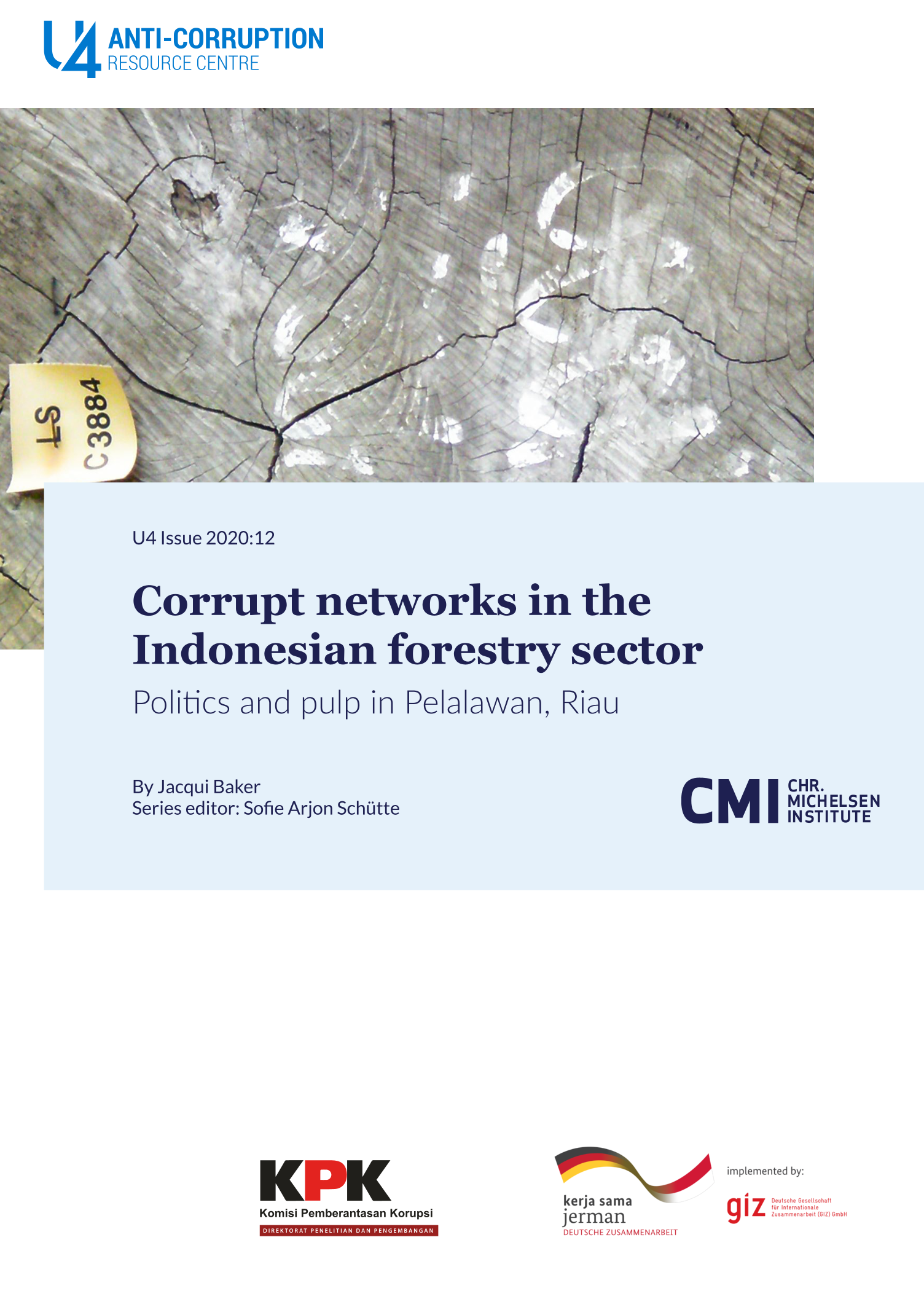Main points
- Social network analysis (SNA) is a valuable tool in the fight against forestry corruption. It sheds light on how corrupt networks function and highlights otherwise unobservable patterns and actors.
- SNA was applied to map a corrupt network that operated in Pelalawan district, Riau province, Indonesia, centred around the district head, who was later convicted on corruption charges, and his right-hand man.
- In the Pelalawan scheme, pulpwood capitalists developed vertically integrated timber suppliers through fictitiously ‘independent’ shell companies. The case shows that corrupt networks cannot be understood apart from the political economy dynamics of the society and sector where they operate.
- Forestry corruption networks have large numbers of actors, organised in clusters of association with unevenly distributed gains. State actors hold monopoly control over key resources, but these networks are dominated by private sector forestry actors, whose role needs to be better understood.
- Indonesian anti-corruption investigators have rightly targeted the major architects of corruption. However, SNA highlights the importance of the many enablers of corrupt activity, who typically escape prosecution. This points to the need for a system of corporate sanctions beyond criminal prosecution.
- Corrupt money circulates beyond its immediate beneficiaries, but investigators rarely pursue this money trail beyond first- or second-tier transactions. Following the trail of dirty money is critical to understanding who benefits from corrupt activities and holding them to account.
- Anti-corruption agencies, law enforcement, and donors should consider providing support for the opening up of legal archives to seed collaborations between academia and law enforcement. These could spearhead new innovations in anti-corruption efforts, though it should be kept in mind that results may be subject to data bias.
